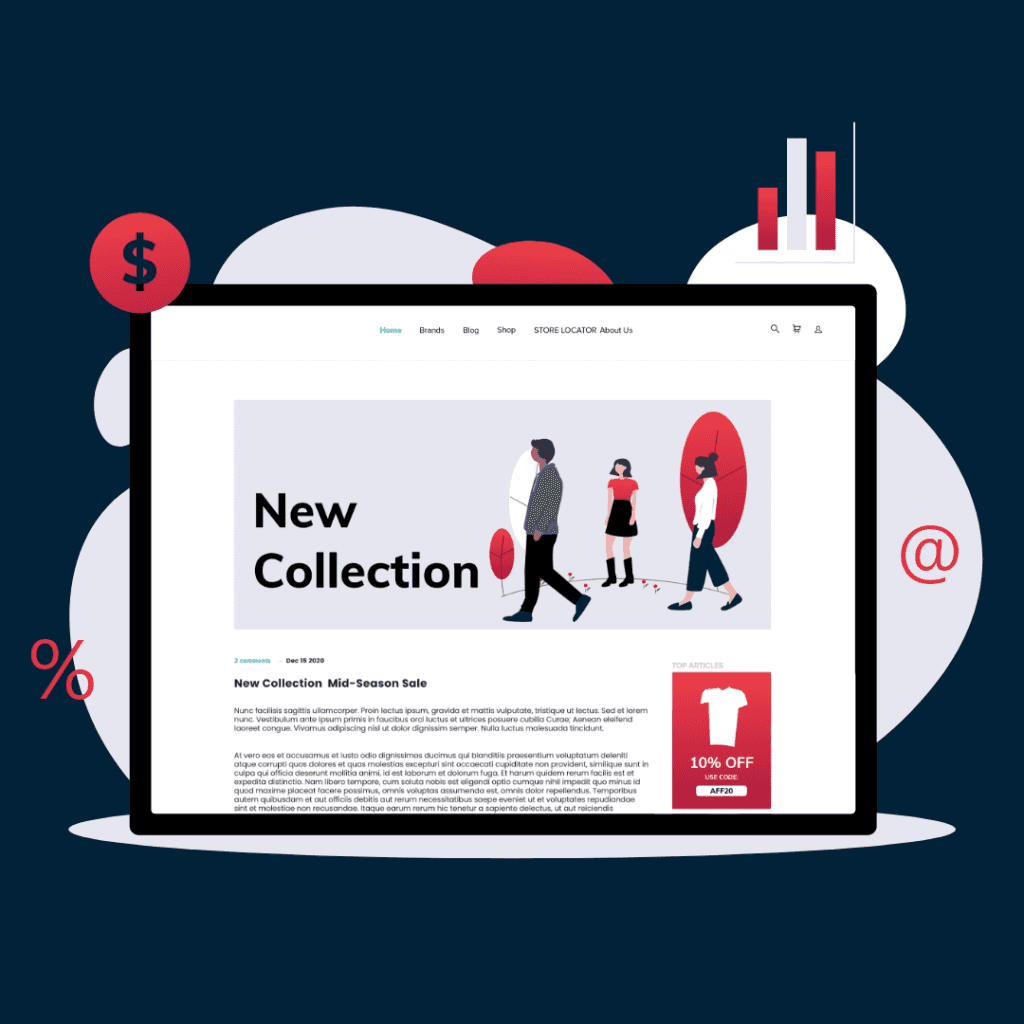Digital Marketing
Influencers or Affiliates: The Right Strategy?
By
MANASI BHASKAR
Jun 2, 2020
They serve as powerful ways to educate the target audience and convert them into customers.
However, it is essential to understand the difference between the two to leverage the right opportunity. So what is the difference between Influencers or Affiliates?
Affiliate Marketing: adopts a pay for performance approach through various affiliates.
Influencer Marketing: is the type of marketing that uses influential people to promote a brand.
Who are Influencers?
Influencers can be celebrities, bloggers, media personalities, industry leaders, etc. These individuals have marketed themselves as a brand through various media channels. They are paid when they can influence a follower’s choice.
Since influencers are a brand within themselves, they maintain their own brand aesthetic. They are in control of the brand’s message. They usually work on short-term campaigns with specific goals or can be tied to a long term goal.

Influencers can be used to target audiences across wide geographic areas to gain more brand awareness and visibility. Since most of them have built their following organically, brands are at an advantage to leverage a wider category of audience.
Who are Affiliates?
Affiliates can be publishers, digital marketers, bloggers, coupon websites, media buyers as well as independent affiliate companies. Affiliates conduct marketing activities with the end goal of customer conversion.
They frequently promote products and services through blogs, social media platforms. They follow Search Engine Marketing and Social Media Marketing best practices. The revenue generated through affiliates is usually tracked using links or coupons.

Affiliates are a more profitable way to achieve sales for products and services. This type of marketing is more based on performance rather than generating brand awareness.
Payment Models & Promotion Channels for Influencers or Affiliates
While influencers get paid a fixed fee, affiliates are paid based on the sales generated by them for a particular campaign. Influencers are hired on a retainer model while affiliates are offered various payout models based on the objective of the campaigns.
Although there are some similarities in the way influencers and affiliates promote their channels, their source might differ from one another. Influencers rely on Instagram, Snapchat, TikTok, etc.

Affiliates on the other hand use channels such as blogs, websites as well as Instagram, Snapchat, etc.
Know more about us
Conclusion
Influencers are influential people but affiliates can own a blog, a website, or a third-party affiliate network.
Ecommerce in the MENA region is expected to reach $69 billion by 2020 as reported by The Entrepreneur Middle East. The affiliate marketing industry stands at around $300 million in MENA while the influencers market is a total of $5.67 billion.
The right strategy depends on the goals and objectives of a business, the channel, and the budget. However, both strategies are great for reaching younger audiences and delivering real-time content.
Know more about our services, visit our Influencer Marketing services, and Affiliate Marketing services for e-commerces in the MENA region.





